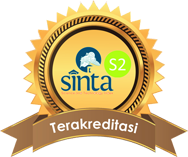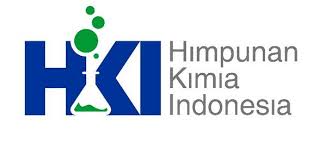Application of Project-Based Learning (PjBL) to Improve Critical Thinking Skills and Students' Learning Independence on the Making of Colloids in Dispersion
DOI:
https://doi.org/10.15575/jtk.v7i1.13395Keywords:
critical thinking skills, independent learning, PjBL modelAbstract
Critical Thinking Skills (CTS) and student learning independence are two things related to the learning process. The low independence of student learning affects critical thinking skills in solving a learning problem. A project-based learning model can improve critical thinking skills and independent learning. This study aims to analyze the application of the PjBL model to manufacture colloids to improve students' critical thinking skills and independent learning at MAN 1 Banda Aceh. The type of research used is quasi experimental. The samples of this study were students of natural science two 11th grade as control class and students of natural science four 11th grade as experimental class, which had normal distribution and had the same variance. The instruments of this research are the CTS test questions and learning independence questionnaires. The results show that applying the PjBL model can improve critical thinking skills (CTS) with an average N-gain value in the medium category, then the CBC analysis of indicators is in the high category. The results of testing the CTS hypothesis for experimental class and control class students are also significantly different, meaning that the CTS model can improve students' critical thinking skills. The analysis of student learning independence results obtained an average score of N-gain, including the medium category. The results of the hypothesis test of student learning independence in the experimental and control classes are also significantly different, meaning that the PjBL model can increase learning independence. The results obtained prove that the PjBL model can improve CTS and learning independence better than in the control class.
References
Aldabus, S. (2018). Project-based learning: implementation & challenges. International Journal of Education, Learning and Development, 6(3), 71–79. Retrieved from https://www.eajournals.org/journals/international-journal-of-education-learning-and-development-ijeld/vol-6-issue-3-march-2018/project-based-learning-implementation-challenges/
Andayani, Y., Zulkarnain, Z., & Hadisaputra, S. (2020). Promoting critical thinking skills of chemistry learning students using preparing doing concluding ( PDC ) learning models. Journal of Physics: Conference Series. https://doi.org/10.1088/1742-6596/1521/4/042116
Aprianty, H., Gani, A., & Pada, A. U. T. (2020). Implementation of project-based learning through stem approach to improve students’ science process skills and learning outcomes. JTK: Jurnal Tadris Kimiya, 5(2), 144–152. https://doi.org/DOI : https://doi.org/10.15575/jtk.v5i2.8370
Aulia, L. N., Susilo, S., & Subali, B. (2019). Upaya peningkatan kemandirian belajar siswa dengan model problem- based learning berbantuan media Edmodo. Jurnal Inovasi Pendidikan IPA, 5(1), 69–78. https://doi.org/https://doi.org/10.21831/jipi.v5i1.18707
Bell, S. (2010). Project-based learning for the 21st century: skills for the future. The Clearing House, 83(2), 39–43. https://doi.org/10.1080/00098650903505415
Birgili, B. (2015). Creative and critical thinking skills in problem-based learning environments. Journal of Gifted Education and Creativity, 2(2), 71–71. https://doi.org/10.18200/jgedc.2015214253
Daryanto. (2014). Pendekatan pembelajaran saintifik kurikulum 2013. Dava Media.
De los Santos, D. M., Montes, A., Sánchez-Coronilla, A., & Navas, J. (2014). Sol–gel application for consolidating stone: an example of project-based learning in a physical chemistry lab. Journal of Chemical Education, 91(9), 1481-1485. https://dx.doi.org/10.1021/ed4008414
Devi, S. K., Ismanto, B., & Kristin, F. (2019). Peningkatan kemandirian dan hasil belajar tematik melalui project based learning. Jurnal Riset Teknologi Dan Inovasi Pendidikan, 2(1), 55–65. Retrieved from https://journal.rekarta.co.id/index.php/jartika/issue/view/24
Ekawati, N. P. N., Dantes, N., & Marhaeni, A. A. I. N. (2019). Pengaruh model project based learning berbasis 4C membaca pemahaman pada siswa kelas IV SD gugus III Kecamatan Kediri Kabupaten Tabanan. PENDASI: Jurnal Pendidikan Dasar Indonesia, 3(1), 41–51. https://doi.org/10.23887/jpdi.v3i1.2866
Ennis, R. H. (1993). Critical Thinking Assessment. Theory Into Practice, 32(3), 179–186.
Etikan, I., Musa, S. A., & Alkassim, R. S. (2016). Comparison of convenience sampling and purposive sampling. American Journal of Theoretical and Applied Statistics, 5(1), 1–4. https://doi.org/10.11648/j.ajtas.20160501.11
Fajri, L., Martini, K. S., & S, A. N. C. (2012). Upaya Peningkatan proses dan hasil belajar kimia materi koloid melalui pembelajaran kooperatif tipe TGT ( Teams Games Tournament ) dilengkapi dengan teka-teki silang bagi siswa kelas XI IPA 4 SMA Negeri 2 Boyolali pada semester genap tahun ajaran 2011 / 2012. Jurnal Pendidikan Kimia (JPK), 1(1), 89–96. Retrieved from https://ejournal.undiksha.ac.id/index.php/JPK/issue
Ferrer-vinent, I. J., Bruehl, M., Pan, D., & Jones, G. L. (2016). Introducing scientific literature to honors general chemistry students: teaching information literacy and the nature of research to first-year chemistry students. Journal of Chemical Education, 92(4), 617–624. https://doi.org/10.1021/ed500472v
Fraenkel, J., Norman, W., & Helen, H. (2011). How to design and evaluate research in education (8th editio). McGraw-Hill.
Hakim, M. F. Al, Sariyatun, S., & Sudiyanto, S. (2018). Constructing student`s critical thinking skill through discovery learning model and contextual teaching and learning model as solution of problems in learning history. International Journal of Multicultural and Multireligious Understanding, 5(4), 175. https://doi.org/10.18415/ijmmu.v5i4.240
Hasbie, M., Rusmansyah, & Istyadji, M. (2018). Penerapan model project based learning ( PjBL ) dalam pembelajaran sistem koloid untuk meningkatkan self efficacy dan kemampuan berpikir kritis peserta didik. JCAE, Journal of Chemistry And Education, 2(2), 50–56. Retrrieved from http://jtam.ulm.ac.id/index.php/jcae/article/view/116/61
Hikmah, N., Budiasih, E., & Santoso, A. (2016). Pengaruh strategi project based learning (PjBL) terhadap kemampuan berpikir kritis siswa kelas XI IPA pada materi koloid. Jurnal Pendidikan: Teori, Penelitian, Dan Pengembangan, 1(11), 2248–2253. Retrieved from http://journal.um.ac.id/index.php/jptpp/
Ismail, F. (2018). Statistika untuk penelitian pendidikan dan ilmu-ilmu sosial. Prenamedia Group.
Kharismawan, B., Haryani, S., & Nuswowati, M. (2018). Application of a Pbl-based modules to increase critical thinking skills and independence learning. Journal of Innovative Science Education, 7(1), 78–86.
https:// DOI 10.15294/JISE.V7I1.23220
Khiat, H. (2015). Academic performance and the practice of self- directed learning : the adult student perspective. Journal of Further and Higher Education, 1–16. https://doi.org/10.1080/0309877X.2015.1062849
Kizkapan, O., & Bektaş, O. (2017). The effect of project based learning on seventh grade students ’ academic achievement. International Journal of Instruction, 10(1), 37–54. Retrieved from https://www.e-iji.net/dosyalar/iji_2017_1_3.pdf
Kurniawan, H. R., Elmunsyah, H., & Muladi. (2018). Perbandingan penerapan model pembelajaran project based learning dan think pair share berbantuan modul ajar terhadap kemandirian dan hasil belajar siswa kelas XI di SMKN 3 Malang. Jurnal Pendiidkan, 3(2), 80–85. https://doi.org/http://dx.doi.org/10.26740/jp.v3n2
Kusadi, N. M. R., Sriartha, I. P., & Kertih, I. W. (2020). Model pembelajaran project based learning terhadap keterampilan sosial dan berpikir kreatif. Thinking Skills and Creativity Journal, 3(1), 18–27. https://doi.org/10.23887/tscj.v3i1.24661
Loeng, S. (2020). Self-Directed Learning : A core concept in adult education. hindawi education research International, 2020, 1–12. https://doi.org/https://doi.org/10.1155/2020/3816132
Muntari, Purwoko, A. ., Savalas, T. R. ., & Wildan. (2018). Pembelajaran berbasis proyek untuk meningkatkan keterampilan proses sains dan berpikir kritis siswa. Jurnal Pendidikan Dan Pengabdian Masyarakat, 1(1), 120–124. Retrieved from https://jurnalfkip.unram.ac.id/index.php/JPPM/article/view/502
Nafisa, D., Sukestiyarno, S., & Hidayah, I. (2021). Critical thinking skill seen from curiosity on independent learning assisted by module. Unnes Journal of Mathematics Education Research, 10(2), 168–174. Retrieved from https://journal.unnes.ac.id/sju/index.php/ujmer/issue/view/1982
Nahdliyati, R., Parmin, & Taufiq, M. (2016). Efektivitas pendekatan saintifik model project based learning tema ekosistem untuk menumbuhkan kemandirian belajar siswa SMP. Unnes Science Education Journal, 5(2), 1227–1234. https://doi.org/10.15294/usej.v5i2.12146
Novianto, N. K., Masykuri, M., & Sukarmin. (2018). Pengembangan modul pembelajaran fisika berbasis proyek ( project based learning ) pada materi fluida statis untuk meningkatkan kreativitas belajar siswa Kelas X SMA / MA. JURNAL INKUIRI, 7(1), 81–92. https://doi.org/10.20961/inkuiri.v7i1.19792
Puspitasari, R. D., Latifah, S., Wati, W., & Yana, E. T. (2018). Kemandirian belajar fisika pada peserta didik dengan pembelajaran berbasis proyek. Indonesian Journal of Science and Mathematics Education, 01(1), 1–12. https://doi.org/10.24042/ijsme.v1i1.2461
Rauziani, R., Yusrizal, Y., & Nurmaliah, C. (2016). Implementasi model project based learning (PJBL) dalam meningkatkan hasil belajar dan berpikir kritis siswa pada materi fluida statis di SMA inshafuddin. Jurnal Pendidikan Sains Indonesia, 4(2), 39-44. Retrieved from http://jurnal.unsyiah.ac.id/JPSI/article/view/7577
Reza, M., Puspita, K., & Oktaviani, C. (2021). Quantitative analysis towards higher order thinking skills of chemistry multiple choice questions for university admission. Jurnal IPA Dan Pembelajaran IPA, 5(2), 172–185. https://doi.org/10.24815/jipi.v5i2.20508
Rumansyah, R., Yuanita, L., Ibrahim, M., Isnawati I., & Prahani, B. K. (2019). Innovative chemistry learning model: improving the critical thinking skill and self-efficacy of pre-service chemistry teachers. Journal of Technology and Science Education, 9(1), 59–76. https://doi.org/https://doi.org/10.3926/jotse.555
Sagala, Y. D. A., Simanjuntak, M. P., Bukit, N., & Motlan. (2020). Penerapan project based learning berbasis LKS terhadap keterampilan berpikir kritis siswa. Jurnal Pendidikan Fisika, 8(2), 85–90. Retrieved from http://digilib.unimed.ac.id/43289/
Saliba, R., Mussleman, P., Fernandes, M., & Bendriss, R. (2017). Promoting information literacy of pre-medical students through project-based learning : a pilot study. International Journal of Education & LIteracy Studies, 5(4), 1–15. https://doi.org/http://dx.doi.org/10.7575/aiac.ijels.v.5n.4p.1
Santos, D.M.D., Montes, A., Coronilla, A.S., & Navas. J. Sol-Gel application for consolidating stone: an example of project based learning in a physical chemistry lab. Journal of Chemical Education, 91, 1481-1485. https://dx.doi.org/10.1021/ed4008414 | J. Chem. Educ. 2014, 91, 1481−1485
Sellars, M., Fakirmohammad, R., Bui, L., Fishetti, J., Niyozov, S., Reynolds, R., Thapliyal, N., Liu-Smith, Y.-L., & Ali, N. (2018). Conversations on critical thinking: can critical thinking find its way forward as the skill set and mindset of the century? Education Sciences, 8(205), 1–29. https://doi.org/10.3390/educsci8040205
Setiawati, H., & Corebima, A. D. (2017). Empowering critical thinking skills of the students having different academic ability in biology learning of senior high school through PQ4R - TPS strategy. The International Journal of Social Sciences and Humanities Invention, 4(5), 3521–3526. https://doi.org/10.18535/ijsshi/v4i5.09
Sulastri, S., Rusman, R., & Arifa, A. (2018). Pengembangan soal-soal kimia bermuatan nilai-nilai untuk memperkokoh karakter siswa SMA. JTK: Jurnal Tadris Kimiya, 3(2), 171–181. https://doi.org/DOI: https://doi.org/10.15575/jtk.v3i2.3512
Sumarni, W., Wardani, S., & Gupitasari, D. N. (2016). Project based learning ( PBL ) to improve psychomotoric skills : a classroom action research. Jurnal Pendidikan IPA Indonesia, 5(2), 157–163. https://doi.org/10.15294/jpii.v5i2.4402
Suranti, N. M. Y., Gunawan, & Sahidu, H. (2016). Pengaruh model project based learning berbantuan media virtual terhadap penguasaan konsep peserta didik pada materi alat-alat optik. Jurnal Pendidikan IPA Dan Teknologi, 2(2), 73–79. https://doi.org/10.29303/jpft.v2i2.292
Walker, M. A., & Li, Y. (2016). Improving information literacy skills through learning to use and edit wikipedia: a chemistry perspective. Journal of Chemical Education, 93(3), 509–515. https://doi.org/10.1021/acs.jchemed.5b00525
Wardani, D. K., Martono, T., Pratomo, L. C., Rusydi, D. S., & Kusuma, D. H. (2019). Online learning in higher education to encourage critical thinking skills in the 21st century. International Journal of Educational Research Review, 4(2), 146–153. http://dx.doi.org/10.24331/ijere.517973
Wenger, K. (2014). Problem-based learning and information literacy a natural partnership. Pennsylvania Libraries: Research & Practice, 2(2), 142–154. https://doi.org/10.5195/palrap.2014.61
Yuliasari, E. (2017). Eksperimentasi model PBL dan model GDL terhadap kemampuan pemecahan masalah matematis ditinjau dari kemandirian belajar the effect of pbl and gdl model to mathematical problem solving ability viewed from self regulated learning pendahuluan pendidikan adal. JIPM (Jurnal Ilmiah Pendidikan Matematika), 6(1), 1–10. http://doi.org/10.25273/jipm.v6i1.1336
Zahroh, F. (2020). Pengaruh model pembelajaran project based learning terhadap kemampuan berpikir kritis siswa pada materi elektrokimia. Jurnal Phenomenom, 10(2), 191–203. https://doi.org/10.21580/phen.2020.10.2.4283
Downloads
Published
How to Cite
Issue
Section
Citation Check
License
Authors who publish with this journal agree to the following terms:
- Authors retain copyright and grant the journal right of first publication with the work simultaneously licensed under a Creative Commons Attribution-ShareAlike that allows others to share the work with an acknowledgement of the work's authorship and initial publication in this journal.
- Authors are able to enter into separate, additional contractual arrangements for the non-exclusive distribution of the journal's published version of the work (e.g., post it to an institutional repository or publish it in a book), with an acknowledgement of its initial publication in this journal.
- Authors are permitted and encouraged to post their work online (e.g., in institutional repositories or on their website) prior to and during the submission process, as it can lead to productive exchanges, as well as earlier and greater citation of published work (See The Effect of Open Access).









